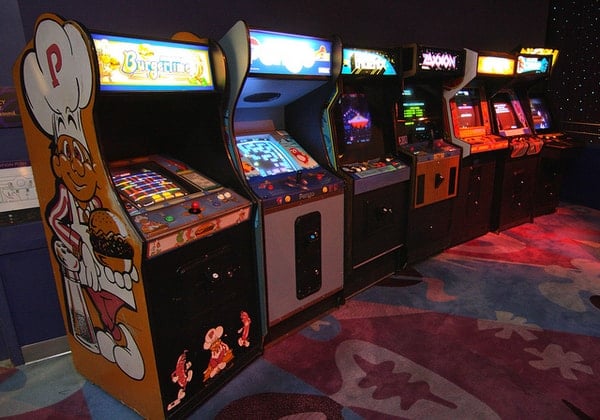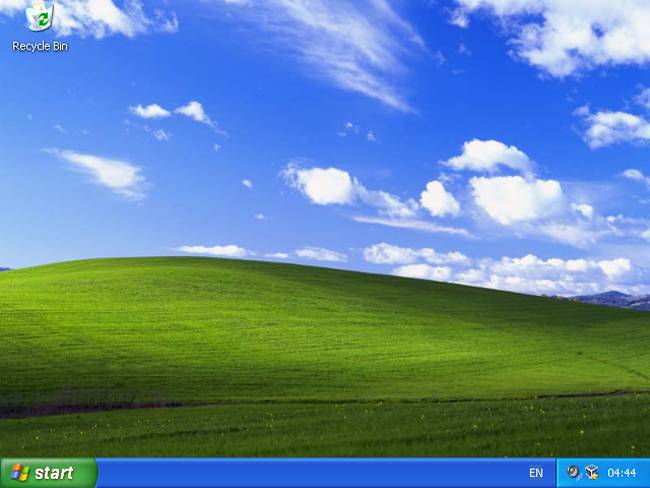
How Tech & Data Are Saving The Elephants
November 6, 2014
Friday Fun Blog: Arcade Edition
November 7, 2014The decline of desktop and laptop sales has been widely documented across the world and with this decline we have seen the astonishing rise of the mobile device. Data from the International Data Corporation (IDC) clearly supports this fact and goes as far as to forecast this pattern into the coming years. As is clear from this data, desktop sales are set to continue to decrease, but does this really mean laptops and desktops are dying out?
Historically, a laptop or a desktop machine was the preferred choice simply because this was the only choice. However, as with most technology these soon gave way to more portable and ultimately convenient alternatives. Apple was a key player in the move to mainstream mobile devices when they entered the market with the original iPhone. With the iPhone, came true portability and for the first time, the internet was in our pocket. Both the iPhone and iPod revolutionized our daily lives and this was especially evident in their stores where employees greet you with a mobile device instead of a traditional cash register.
However, it wasn’t until the release of the iPad that the much anticipated “post PC” era truly began to materialize in the mind of the modern consumer. Sure, at first all iPhone and iPad models required the user to sync with a laptop or desktop device, but with the introduction of a more modern IOS, the need for a computer soon disappeared. For the majority of consumers today, the need for any form of device stems from a need to access the internet.
Whilst Apple may well be accountable for the initial boost to the mobile device, they are certainly not the only player in this game. Android devices have since sold more devices than Apple and today you can buy hundreds of different brands of tablet devices. What’s great about this variety for our modern day consumer is that there is a range of screen sizes available, making a simple task like browsing the internet extremely easy. Multi-touch gestures also allow the user to zoom into finer detail and to scroll and move around a page with ease. With this ease-of-use, it’s by far preferable to bring a device like this to you, than to bring yourself to a stationary device.
The decline of laptops and PCs is not only evident in the home. In business, employees are out meeting customers with tablet devices, allowing greater portability and smoother interaction. The same is true in the retail environment. Apple may have been the first to use mobile devices effectively, but today payments can be accepted by tablets and mobiles alike, which enabled small businesses to accept card payments from any location. This is the ideal solution for businesses on the move, or pop-up shops at festivals and locations where traditional power supplies may not be readily available.
Whilst mobile devices are now synonymous with the internet, the internet has similarly become synonymous with the tech giant Google. So when Google CEO Eric Schmidt started thinking “mobile first” in 2010 the world listened. This has become so prevalent, that many traditionally mobile features can be found on a desktop device, most noticeably the newer style Google search results.
In the same vein, laptop and desktop devices are increasingly growing to mirror our mobile devices. Windows 8 is the most obvious example of this fact and by opting for larger colorful icons, the lines between the desktop and windows mobile operating systems are becoming increasing blurred. Apple’s latest OS Yosemite is also adapted to encourage integration with mobile devices. All of this suggests that rather than leaving the laptop and desktop behind, we are moving into an era when all devices work in sync to serve their unique purpose collectively.
Two-thousand-fourteen is also the year that technology took one more step away from the traditional desktop device and took the first serious step into mainstream wearable tech. Google Glass and the Apple Watch have stolen the show this year, but smart watches by other brands are already fast appearing in stores worldwide. With mobile notifications and even the internet on our faces and wrists, convenience has now taken a leap out of our pockets.
Considering the popularity of mobile devices and the inevitable popularity of wearable tech, the question as to whether or not laptops and desktops are dying out has never been more apt. However, at least for the moment there are a few things keeping the PC alive and well. The technical specifications of a PC are miles ahead of any mobile device, meaning any professional or graphic heavy task will need to be completed on a computer. The memory on a computer is also phenomenally larger than alternatives, so even if today’s consumers keep hold of their computers simply to store their music library, the personal computer will never die out.
For more information, please contact Jared Keleher
